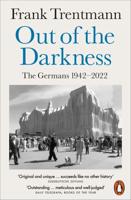Publisher's Synopsis
For the first time, this volume centers the rich but little known history of radical Jewish politics in the Middle East and North Africa and puts it into conversation with developments in the Americas, South Africa, Soviet Asia, and Europe. Jews were attracted to radical politics in the nineteenth and twentieth centuries to transform the societies they lived in but also out of a deep desire to belong. Somewhat paradoxically, then, radical politics held out the enticing possibility of normalization for Jews, even as it frequently resulted in their further alienation or persecution. In some cases, Jewish radicals sought recognition and autonomy as Jews; in others, Jews labored to be accepted as full-fledged citizens of their home countries; in still others, they tried to escape Jewishness altogether. Jewish experiences of modernity, colonialism, race, nationalism, emancipation, war, and migration, serve as the connective tissue that binds together radical Jewish politics from Baghdad to Buenos Aires.









